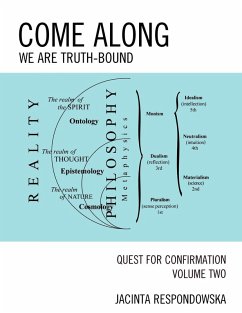
Symbiosism
Versandkostenfrei!
Versandfertig in 1-2 Wochen
50,99 €
inkl. MwSt.

PAYBACK Punkte
25 °P sammeln!
The philosophy of symbiosism designates the rational, and therefore universal, principles of human behavior for living together in peace, security, and happiness. The name has been coined by the author from the combination of three common terms: a prefix, 'sym-,' meaning 'together'; a root and combining form, 'bios,' meaning 'mode of life'; and a suffix, '-ism,' meaning doctrine or adherence to a system of principles. Synthesized from moral traditions of various religions and philosophies of both the West and the East, the concept of Symbiosism presented in this work is intended to serve as th...
The philosophy of symbiosism designates the rational, and therefore universal, principles of human behavior for living together in peace, security, and happiness. The name has been coined by the author from the combination of three common terms: a prefix, 'sym-,' meaning 'together'; a root and combining form, 'bios,' meaning 'mode of life'; and a suffix, '-ism,' meaning doctrine or adherence to a system of principles. Synthesized from moral traditions of various religions and philosophies of both the West and the East, the concept of Symbiosism presented in this work is intended to serve as the moral foundation for the cultural and political unification of democratic societies throughout the world.














